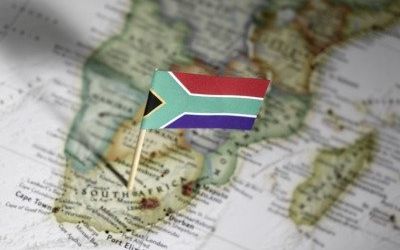LOCAL GOVERNMENT: Priority districts targeted
by Sbu Mpungose,
2014-11-20 07:01:51.0
INNOCENT Podile is the coach of an under-13 boys’ soccer club, and earns a stipend of R539/month to do so. He is one of 15 to have been hired as part of the local Football4Youth programme. The job opportunity, says the 22-year-old, has not only provided steady income, but has also expanded his skills set and provided the much-needed “previous employment experience” on his CV.
Podile trains his boys in the small town of Bronkhorstspruit, 60km east of Pretoria, just before you get to the enormous Kusile Power Station under construction. The programme that he and his team benefit from was set up as part of the nationwide Community Work Programme (CWP), which aims to give access to jobs at the grassroots level while contributing to public welfare and social services. While 15 have been employed in Podile’s town, the programme is planning to grow to 112 coaches at four different sites. It is managed by the Sereti Institute, a community support organisation, in partnership with the SA Football Association.
The CWP tackles a number of NDP targets simultaneously. By improving social infrastructure on the ground it simultaneously tries to tackle levels of violence and crime, provide jobs and enable residents to contribute to community development. The Seriti Institute was appointed as one of the implementing agents for the CWP and draws on partners with various community groups and other interested parties to develop its programmes.
The medium-term strategic framework plans to expand the CWP to 234 municipalities and reach one-million participants as part of various programmes to address local government effectiveness. It falls under the national Department of Cooperative Governance and Traditional Affairs (Cogta).
According to Cogta, by March 2014 the programme had reached 148 sites, covering 140 municipalities throughout the country, with an average of 1,000 participants. In the current financial year the programme is providing 15,000 work opportunities spread throughout nine provinces, with 214 425 participants cumulatively.
A study commissioned by Trade and Industrial Policy Strategy to the University of Cape Town’s Centre for Democratising Information found that the monthly wages received by participants involved in the CWP enabled them and their families to purchase basic necessities such as food. The wages were also used to pay for services such as water and electricity, and invest in savings products such as stokvels.
Some of the benefits of the CWP reported by participants in the research were active job seeking, attainment of technical skills and engagement in micro and survivalist enterprises, including food production in their homes. This ultimately leads to the sustenance of municipals’ economy.
Football4Youth is just one programme among many under the CWP. Others include the restoring of a vandalised school in Khayelitsha, Cape Town; a CWP site in Keiskammahoek, Eastern Cape, involved the community in a nursery growing Vetiver plants to fulfil a 10 000/year order for stocking new areas.
The programme has clear challenges. Corruption – reports of graft, nepotism and flouting of procurement process – remains a key challenge in municipalities and by extension in the CWPs. Additionally, the demand of such job opportunities in the community outstrip the supplied opportunities due to budget constraints, leading to some domestic strife.

Picture: SUPPLIED
INNOCENT Podile is the coach of an under-13 boys’ soccer club, and earns a stipend of R539/month to do so. He is one of 15 to have been hired as part of the local Football4Youth programme. The job opportunity, says the 22-year-old, has not only provided steady income, but has also expanded his skills set and provided the much-needed “previous employment experience” on his CV.
Podile trains his boys in the small town of Bronkhorstspruit, 60km east of Pretoria, just before you get to the enormous Kusile Power Station under construction. The programme that he and his team benefit from was set up as part of the nationwide Community Work Programme (CWP), which aims to give access to jobs at the grassroots level while contributing to public welfare and social services. While 15 have been employed in Podile’s town, the programme is planning to grow to 112 coaches at four different sites. It is managed by the Sereti Institute, a community support organisation, in partnership with the SA Football Association.
The CWP tackles a number of NDP targets simultaneously. By improving social infrastructure on the ground it simultaneously tries to tackle levels of violence and crime, provide jobs and enable residents to contribute to community development. The Seriti Institute was appointed as one of the implementing agents for the CWP and draws on partners with various community groups and other interested parties to develop its programmes.
The medium-term strategic framework plans to expand the CWP to 234 municipalities and reach one-million participants as part of various programmes to address local government effectiveness. It falls under the national Department of Cooperative Governance and Traditional Affairs (Cogta).
According to Cogta, by March 2014 the programme had reached 148 sites, covering 140 municipalities throughout the country, with an average of 1,000 participants. In the current financial year the programme is providing 15,000 work opportunities spread throughout nine provinces, with 214 425 participants cumulatively.
A study commissioned by Trade and Industrial Policy Strategy to the University of Cape Town’s Centre for Democratising Information found that the monthly wages received by participants involved in the CWP enabled them and their families to purchase basic necessities such as food. The wages were also used to pay for services such as water and electricity, and invest in savings products such as stokvels.
Some of the benefits of the CWP reported by participants in the research were active job seeking, attainment of technical skills and engagement in micro and survivalist enterprises, including food production in their homes. This ultimately leads to the sustenance of municipals’ economy.
Football4Youth is just one programme among many under the CWP. Others include the restoring of a vandalised school in Khayelitsha, Cape Town; a CWP site in Keiskammahoek, Eastern Cape, involved the community in a nursery growing Vetiver plants to fulfil a 10 000/year order for stocking new areas.
The programme has clear challenges. Corruption – reports of graft, nepotism and flouting of procurement process – remains a key challenge in municipalities and by extension in the CWPs. Additionally, the demand of such job opportunities in the community outstrip the supplied opportunities due to budget constraints, leading to some domestic strife.




















Change: -0.47%
Change: -0.61%
Change: 0.53%
Change: -0.42%
Change: -2.12%
Data supplied by Profile Data
Change: -0.46%
Change: -0.22%
Change: -0.47%
Change: 0.00%
Change: -0.21%
Data supplied by Profile Data
Change: -1.29%
Change: -1.20%
Change: -0.73%
Change: -1.36%
Change: -1.24%
Data supplied by Profile Data
Change: 0.62%
Change: 1.35%
Change: 1.45%
Change: 0.00%
Change: 1.15%
Data supplied by Profile Data